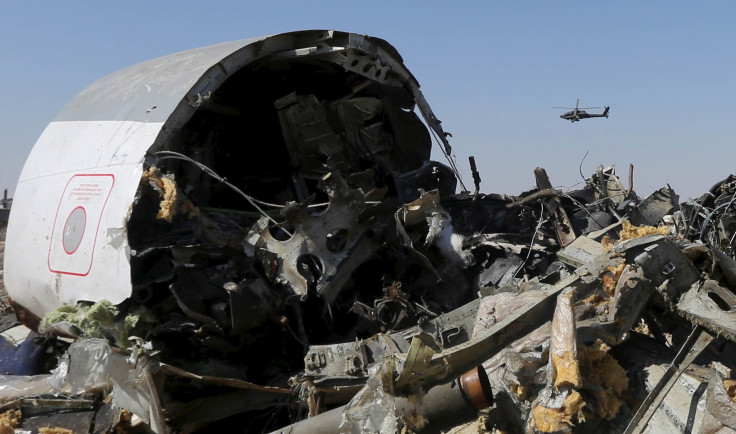Russia's Security Chief Accepts Bomb Brought Down Metrojet Flight In Egypt, Putin Vows Action

UPDATE: 5 a.m. EST -- Egyptian authorities detained two employees at the Sharm el-Sheikh airport, linking them to the Oct. 31 Metrojet plane crash, Reuters reported Tuesday, citing two security officials. The plane, which was traveling from Sharm el-Sheikh in Egypt to St. Petersburg in Russia, crashed in Egypt’s Sinai Peninsula, killing all 224 people on board.
"Seventeen people are being held. Two of them are suspected of helping whoever planted the bomb on the plane at Sharm al-Sheikh airport," an official told Reuters.
Original story:
Russian authorities on Tuesday said for the first time that the Russian Metrojet plane that crashed over Egypt’s Sinai Peninsula on Oct. 31, killing 224 people on board, was brought down by a bomb. The Airbus A321 passenger plane was headed to St. Petersburg from Sharm el-Sheikh resort in Egypt.
Alexander Bortnikov, the head of Federal Security Service of the Russian Federation (FSB), made the comments in a meeting headed by Russian President Vladimir Putin. “One can unequivocally say it was a terrorist act,” Bortnikov said, according to the Guardian, which cited a transcript published on the Kremlin’s website. The FSB also reportedly said traces of explosives were found among the plane’s debris. The comments supported the theory proposed earlier that a bomb placed in the hold of the plane led to the crash.
"After tests of the personal items and elements of the aircraft, examination has revealed traces of explosives on the [Airbus] A321," Bortnikov said, according to CBS News, adding that it was an "improvised, homemade bomb," with nearly 1.6 pounds of TNT.
Putin ordered for Russian special services to find out who was responsible for the act and offered $50 million for credible information into the October crash. “It is not the first time Russia has faced these barbaric terrorist crimes, which often come without any visible reasons, internal or external, as was the case with terrorist act in Volgograd back in 2013. We haven't forgotten anything or anyone,” Putin said Tuesday, according to Sputnik News, adding: “We should pursue them without any statute of limitations and should know all of them by name. We will be looking for them wherever they would try to hide. We will find them in any part of the world and punish.”
During a question-and-answer session on Monday following the G-20 summit in Antalya, Turkey, Putin said: “If there was an explosion, then traces of explosives should remain on the fuselage shell and passengers’ belongings. This is certain. And we have enough equipment and good, world-class experts in this domain who are capable of discovering those traces.”
Last week, British Foreign Secretary Philip Hammond said there was a “high probability” that a bomb placed by a supporter of the Islamic State group had brought down the Russian jet. He reportedly added: “It may have been an individual who was inspired by ISIS, who was self-radicalized by looking at ISIS propaganda and was acting in the name of ISIS without necessarily being directed.”
© Copyright IBTimes 2025. All rights reserved.





















